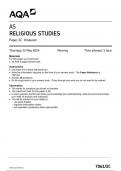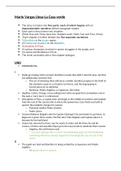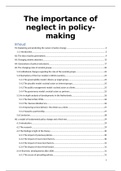Samenvatting
Summary of The principles of biomedical ethics chapter 4: Respect for autonomy
- Vak
- Instelling
- Boek
A summary of Chapter 4: Respect for autonomy Contains definitions as written in the book, often explicated/or debated in the summary or annotations. (There also is a summary containing this chapter + chapters 1/5/6/7)
[Meer zien]










